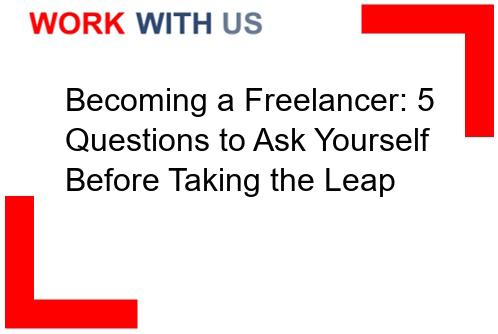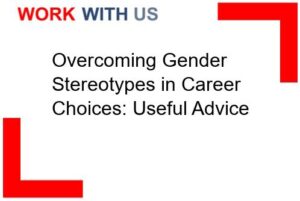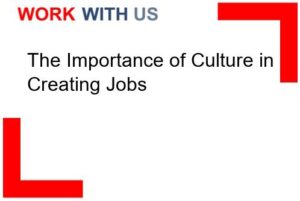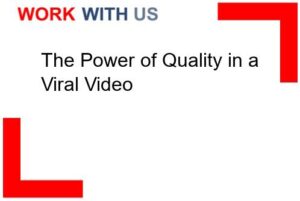In today’s ever-evolving job market, more and more individuals are turning to freelancing as a way to take control of their careers and work on their own terms. The idea of being your own boss, setting your own schedule, and choosing the projects you work on can be incredibly appealing. However, before taking the leap into freelancing, there are several important questions that individuals should ask themselves to ensure that they are ready for the challenges and rewards that come with this career path.
First and foremost, individuals considering freelancing should ask themselves if they have the necessary skills and experience to succeed in their chosen field. Freelancing requires a high level of self-motivation, discipline, and expertise in a particular area. It is important to assess whether you have the skills and experience needed to attract clients and deliver high-quality work consistently. If there are gaps in your skill set, consider taking courses or gaining additional experience before making the transition to freelancing.
Another important question to ask yourself before becoming a freelancer is whether you have a strong network of contacts and potential clients. Building a client base as a freelancer can be challenging, especially in the beginning. It is essential to have a network of contacts who can provide referrals and help you find new opportunities. If you do not already have a strong network, consider reaching out to former colleagues, attending networking events, and utilizing online platforms to connect with potential clients.
Additionally, individuals should consider their financial situation before becoming a freelancer. Freelancing can be unpredictable, with income fluctuating from month to month. It is important to have a financial cushion in place to cover expenses during slow periods and to ensure that you can support yourself while building your freelance business. Consider creating a budget, setting aside savings, and exploring options for health insurance and retirement savings as a freelancer.
Another important question to ask yourself before becoming a freelancer is whether you are comfortable with the uncertainty and risk that comes with this career path. Freelancing can be unpredictable, with projects ending suddenly, clients changing their minds, and income varying from month to month. It is essential to be comfortable with the uncertainty and to have a plan in place for managing risk. Consider creating a contingency plan, setting realistic goals, and seeking support from other freelancers or mentors.
Finally, individuals considering freelancing should ask themselves if they are passionate about their chosen field and motivated to succeed as a freelancer. Freelancing requires a high level of dedication, perseverance, and passion for your work. It is important to be motivated by more than just the idea of being your own boss and to have a genuine interest in the work that you do. Consider whether you are willing to put in the time and effort required to build a successful freelance business and whether you are truly passionate about your chosen field.
In conclusion, becoming a freelancer can be a rewarding and fulfilling career path for individuals who are prepared to take on the challenges and responsibilities that come with working for themselves. By asking themselves these important questions before taking the leap into freelancing, individuals can ensure that they are ready to succeed as freelancers and to build a successful and sustainable freelance business.
Assessing your skills and experience: 5 questions to ask yourself before becoming a freelancer
Before taking the leap into freelancing, it is crucial to assess one’s skills and experience to ensure a successful transition. Freelancing offers flexibility and independence, but it also requires a certain level of expertise and self-discipline. To help individuals determine if they are ready to become a freelancer, here are five essential questions to ask themselves.
Firstly, individuals should evaluate their skill set and determine if they have the necessary skills to succeed as a freelancer. This includes not only technical skills related to their field of work but also soft skills such as communication, time management, and problem-solving. Freelancers must be able to work independently, meet deadlines, and deliver high-quality work without constant supervision. Assessing one’s skills honestly can help individuals identify areas where they may need to improve before embarking on a freelance career.
Secondly, individuals should consider their level of experience in their chosen field. While freelancing can be a great way for experienced professionals to leverage their expertise and build a successful business, it can also be challenging for those who are just starting out. Beginners may struggle to find clients, establish credibility, and navigate the complexities of self-employment. It is important for individuals to realistically assess their experience level and determine if they have the necessary knowledge and expertise to thrive as a freelancer.
Additionally, individuals should evaluate their financial situation and determine if they are prepared for the financial uncertainties of freelancing. Freelancers do not have the security of a steady paycheck or benefits, and income can fluctuate significantly from month to month. It is essential for individuals to have a solid financial plan in place, including savings to cover expenses during slow periods, a realistic budget, and a plan for managing taxes and other financial obligations. Assessing one’s financial readiness can help individuals avoid unnecessary stress and uncertainty as they transition to freelancing.
Furthermore, individuals should assess their motivation and commitment to freelancing. Freelancing requires a high level of self-motivation, discipline, and resilience. Freelancers must be willing to hustle for clients, manage their time effectively, and handle rejection and setbacks with grace. It is important for individuals to reflect on their reasons for wanting to become a freelancer and determine if they have the passion and drive to succeed in a competitive and demanding industry. Assessing one’s motivation can help individuals stay focused and committed as they navigate the challenges of freelancing.
Lastly, individuals should consider their personal and professional goals and determine if freelancing aligns with their long-term aspirations. Freelancing can offer flexibility, autonomy, and the opportunity to pursue passion projects, but it can also be isolating, stressful, and unpredictable. It is important for individuals to assess whether freelancing is the right fit for their lifestyle, career goals, and personal values. Reflecting on one’s goals can help individuals make an informed decision about whether freelancing is the best path forward or if they may be better suited to traditional employment or another career path.
In conclusion, assessing one’s skills and experience is a critical step in determining if freelancing is the right choice. By asking themselves these five questions, individuals can gain clarity on their readiness to become a freelancer and make an informed decision about their future career path. Freelancing can be a rewarding and fulfilling career choice for those who are prepared, motivated, and committed to success. By taking the time to assess their skills, experience, financial readiness, motivation, and goals, individuals can set themselves up for a successful and sustainable freelance career.
Understanding the financial implications: key questions to consider before transitioning to freelancing
Transitioning to freelancing can be an exciting and liberating career move for many individuals. However, before taking the leap, it is crucial to understand the financial implications of such a decision.
There are several key questions that freelancers should consider before making the transition.
One of the most important questions to ask is
how much money
will be needed to sustain oneself during the initial stages of freelancing. Freelancers often experience fluctuations in income, so it is essential to have a solid financial plan in place.
Creating a budget
that outlines monthly expenses and income projections can help freelancers better understand their financial needs and make informed decisions about their career transition.
Another important consideration is
how freelancers will manage their taxes
. Unlike traditional employees, freelancers are responsible for paying their own taxes, including self-employment tax. It is crucial for freelancers to set aside a portion of their income for taxes and to keep detailed records of their expenses to maximize deductions.
Consulting with a tax professional
can help freelancers navigate the complexities of self-employment taxes and ensure compliance with tax laws.
Freelancers should also consider
how they will handle healthcare and retirement savings
. As independent contractors, freelancers do not have access to employer-sponsored health insurance or retirement plans. It is important for freelancers to explore their options for healthcare coverage, such as purchasing a private insurance plan or enrolling in a healthcare marketplace. Additionally, freelancers should prioritize saving for retirement by setting up a retirement account, such as an Individual Retirement Account (IRA) or a Simplified Employee Pension (SEP) plan.
Managing cash flow
is another critical aspect of freelancing. Freelancers often experience irregular income streams, which can make it challenging to cover expenses during slow periods. It is essential for freelancers to establish a system for invoicing clients promptly and setting aside a portion of their income for emergencies.
Creating a cash flow forecast
can help freelancers anticipate their financial needs and make informed decisions about their spending and saving habits.
Lastly, freelancers should consider
how they will market their services
and attract clients. Building a strong client base is essential for freelancers to maintain a steady income and grow their business. Freelancers should invest time and resources in marketing strategies, such as creating a professional website, networking with potential clients, and leveraging social media platforms to showcase their work.
Developing a marketing plan
can help freelancers identify their target audience, differentiate themselves from competitors, and attract new clients to sustain their business.
The importance of financial planning in freelancing
Financial planning is crucial for freelancers to achieve long-term success and stability in their careers. Freelancers should prioritize
setting financial goals
and creating a roadmap to achieve them. Whether it is saving for a major purchase, paying off debt, or building a retirement fund, having clear financial goals can help freelancers stay motivated and focused on their financial well-being.
Building a financial cushion
is essential for freelancers to weather financial uncertainties and unexpected expenses. Freelancers should aim to save at least three to six months’ worth of living expenses in an emergency fund to cover any unforeseen circumstances, such as a sudden loss of income or a medical emergency. Having a financial cushion can provide freelancers with peace of mind and financial security during challenging times.
Investing in professional development
is another important aspect of financial planning for freelancers. Continuous learning and skill development can help freelancers stay competitive in their industry, attract new clients, and command higher rates for their services. Freelancers should allocate a portion of their income towards professional development, such as attending workshops, taking online courses, or investing in certifications that can enhance their skills and expertise.
Diversifying income streams
can help freelancers mitigate the risks associated with relying on a single source of income. Freelancers should explore opportunities to diversify their income by offering a range of services, targeting different client industries, or creating passive income streams, such as selling digital products or licensing their work. Diversifying income streams can provide freelancers with greater financial stability and resilience in a competitive market.
Seeking financial advice
from a professional financial advisor or accountant can help freelancers make informed decisions about their finances and achieve their financial goals. A financial advisor can provide personalized guidance on budgeting, saving, investing, and tax planning, tailored to the unique needs and circumstances of freelancers. By seeking professional advice, freelancers can gain valuable insights and strategies to optimize their financial health and achieve long-term financial success.
Evaluating your work-life balance: important questions to ponder before embarking on a freelance career
In today’s fast-paced world, many individuals are considering a freelance career as a way to achieve a better work-life balance. However, before making the leap into freelancing, it is important to carefully evaluate whether this career path is the right fit for you. There are several important questions to ponder before embarking on a freelance career.
One key question to consider is whether you have the necessary skills and experience to succeed as a freelancer. Freelancing often requires a high level of self-motivation, discipline, and time management skills. It is important to assess whether you have the ability to work independently and meet deadlines without the structure of a traditional office environment.
Another important consideration is your financial situation. Freelancing can be unpredictable, with income varying from month to month. Before becoming a freelancer, it is crucial to have a solid financial plan in place to ensure that you can support yourself during lean times. It may also be wise to have a financial cushion saved up before making the transition to freelancing.
Additionally, it is important to evaluate your personal goals and priorities. Consider what you hope to achieve by pursuing a freelance career. Are you looking for more flexibility and control over your schedule? Do you want to pursue your passion and work on projects that truly interest you? Understanding your motivations for freelancing can help you make an informed decision about whether this career path aligns with your goals.
Another important question to ponder is how freelancing will impact your work-life balance. While freelancing can offer greater flexibility and autonomy, it can also blur the lines between work and personal life. It is important to establish boundaries and set aside time for self-care and relaxation to prevent burnout. Consider how freelancing will fit into your overall lifestyle and whether it will allow you to achieve a healthy balance between work and leisure.
Furthermore, it is essential to assess the market demand for your skills and services as a freelancer. Research the industry trends and competition in your field to determine whether there is a viable market for your offerings. Consider networking with potential clients and building a portfolio of work to showcase your expertise. Understanding the demand for your services can help you position yourself for success as a freelancer.
Another important factor to consider is the level of support and resources available to you as a freelancer. Freelancing can be a solitary pursuit, and it is important to have a strong support system in place. This may include mentors, peers, or professional organizations that can provide guidance and advice as you navigate the freelance landscape. Additionally, consider the tools and resources you will need to effectively manage your freelance business, such as accounting software, project management tools, and marketing materials.
In conclusion, evaluating your work-life balance before embarking on a freelance career is crucial to ensuring your success and well-being as a freelancer. By asking yourself important questions about your skills, financial situation, goals, and support system, you can make an informed decision about whether freelancing is the right path for you. Remember to carefully consider all aspects of freelancing before making the leap, and be prepared to adapt and evolve as you navigate the challenges and opportunities of freelance work.
Considering the market demand: 5 questions to help you determine if freelancing is right for you
Freelancing has become an increasingly popular career choice for many individuals seeking flexibility and autonomy in their work. However, before diving into the world of freelancing, it is important to consider the market demand for your skills and services. Here are five questions to help you determine if freelancing is the right path for you:
What is the demand for your skills?
Before making the leap into freelancing, it is crucial to assess the market demand for your particular skills and expertise. Research the industry trends and job opportunities in your field to determine if there is a high demand for your services. If there is a strong demand for your skills, freelancing may be a viable option for you.
Are you able to market yourself effectively?
As a freelancer, you will be responsible for marketing yourself and attracting clients. It is essential to have strong marketing skills and the ability to promote your services effectively. Consider if you have the necessary skills and resources to market yourself in a competitive market.
Do you have a strong network of potential clients?
Building a strong network of potential clients is essential for success as a freelancer. Consider if you have existing connections in your industry that could potentially lead to freelance opportunities. Networking and building relationships with potential clients is crucial for securing consistent work as a freelancer.
Are you comfortable with the uncertainty of freelancing?
Freelancing can be unpredictable, with fluctuating workloads and income. It is important to consider if you are comfortable with the uncertainty that comes with freelancing. Freelancers often face periods of feast or famine, where work may be abundant one month and scarce the next. If you are comfortable with the ups and downs of freelancing, it may be the right choice for you.
Do you have the necessary skills and resources to succeed as a freelancer?
Freelancing requires a unique set of skills and resources to succeed. Consider if you have the necessary skills, such as time management, self-discipline, and communication, to thrive as a freelancer. Additionally, assess if you have the resources, such as a reliable internet connection and necessary tools, to support your freelance work.
The Benefits of Freelancing
Freelancing offers a range of benefits that make it an attractive career choice for many individuals. One of the primary benefits of freelancing is the flexibility it provides. Freelancers have the freedom to set their own schedules, choose their clients, and work from anywhere in the world. This flexibility allows freelancers to achieve a better work-life balance and pursue their passions outside of work.
Another benefit of freelancing is the potential for higher earnings. Freelancers have the opportunity to set their rates and take on multiple projects simultaneously, which can lead to increased income potential. Additionally, freelancers have the ability to diversify their income streams by working with multiple clients in different industries.
Challenges of Freelancing
While freelancing offers many benefits, it also comes with its own set of challenges. One of the main challenges of freelancing is the lack of job security. Freelancers do not have the same stability and benefits as traditional employees, and may face periods of uncertainty and financial instability.
Another challenge of freelancing is the need for self-discipline and motivation. Freelancers are responsible for managing their own schedules and workload, which can be challenging for individuals who struggle with time management and self-discipline. Additionally, freelancers may face isolation and loneliness, as they often work independently without the support of a team or colleagues.
Tips for Success as a Freelancer
To succeed as a freelancer, it is important to develop a strong personal brand and market yourself effectively. Building a professional website and portfolio, networking with potential clients, and showcasing your skills and expertise are essential for attracting clients and securing freelance opportunities.
Additionally, it is important to establish clear boundaries and set realistic goals for your freelance work. Setting boundaries around your work hours, rates, and scope of work can help you maintain a healthy work-life balance and avoid burnout. Setting realistic goals and milestones for your freelance business can help you stay motivated and focused on achieving success.
Freelancing can be a rewarding and fulfilling career choice for individuals seeking flexibility, autonomy, and the opportunity to pursue their passions. By considering the market demand for your skills, assessing your ability to market yourself effectively, building a strong network of potential clients, embracing the uncertainty of freelancing, and developing the necessary skills and resources, you can determine if freelancing is the right path for you. With careful planning, hard work, and dedication, you can succeed as a freelancer and build a successful freelance business.



